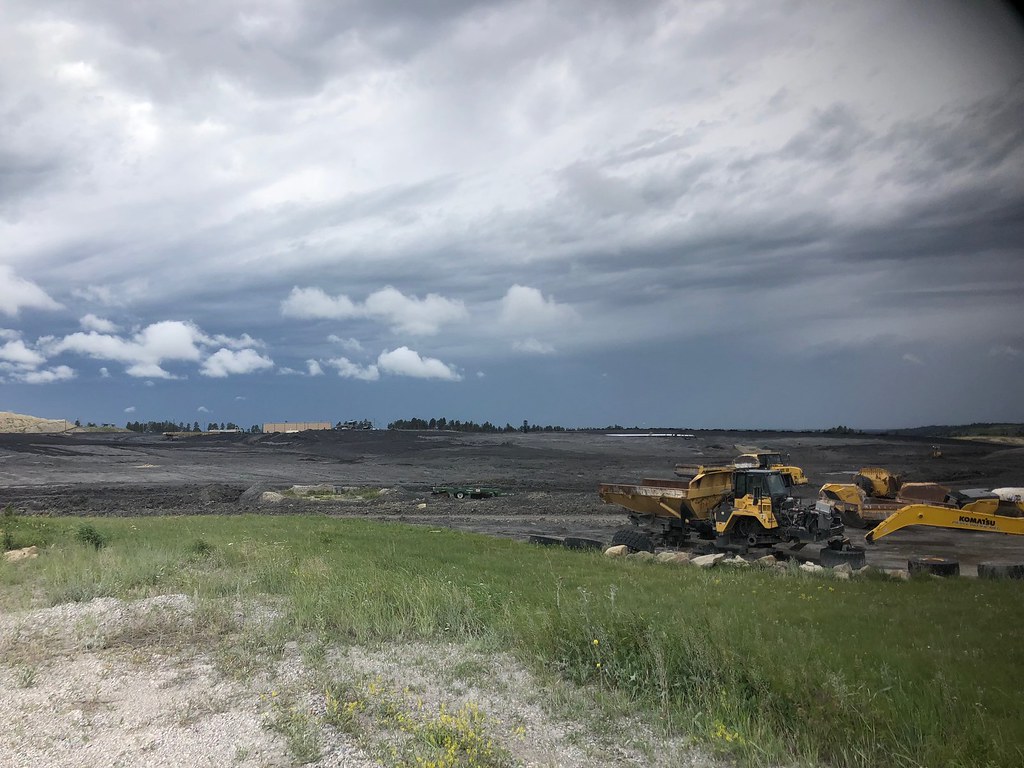The Department of Interior announced federal approval of the mining plan modification for the Bull Mountains coal mine last Friday, prompting immediate statements of support from Montana’s congressional delegation.
Senator Tim Sheehy and Congressman Troy Downing both released statements applauding the Trump administration’s decision, which extends the mine’s life by up to nine years and authorizes recovery of approximately 22.8 million tons of federal coal and 34.5 million tons of adjacent non-federal coal.
Economic Impact and Employment
The Bull Mountains Mine, operated by Signal Peak Energy LLC and located near Roundup in Musselshell County, employs over 250 workers. According to Sheehy, it supplies critical energy exports to U.S. defense allies Japan and South Korea. The project is expected to generate over $1 billion in combined local, state, and county economic benefits, including wages, taxes, and business activity. These benefits play an essential role in the local economy, underpinning job creation and community stability in Musselshell County.
Building on previous legislative efforts by Montana Senators to preserve mining jobs and energy security, the approval reflects a significant development in securing the mine’s future operation. As previously reported in April, Senate Bill S.362 was a critical step toward addressing legislative barriers.
State and Congressional Response
Governor Greg Gianforte praised the approval as a victory for Montana coal miners and criticized the Biden administration’s energy policies.
“Today’s approval of Signal Peak’s latest permit for the Bull Mountain Mine is a long-awaited victory for Montana coal miners,” Gianforte said. “In the last four years under Joe Biden and Kamala Harris, we witnessed an all-out war on American energy as they drug their feet and jeopardized our job-creating coal mines across the country.”
Gianforte emphasized the national security implications of energy production, stating that “Energy security is national security. The coal mined by Signal Peak will not only protect America’s energy independence, but will be a source of affordable, reliable energy for our allies, instead of forcing them to rely upon the enemies of Western Civilization to keep their lights on.”
The governor noted that the Signal Peak permit is the first in the country to be approved under President Trump’s new executive orders, referencing his participation in the April signing ceremony where Trump restored coal production policies.
Senator Sheehy praised the decision as advancing President Trump’s energy emergency directives and strengthening U.S. energy partnerships abroad.
“Thanks to the Trump Administration for protecting Montana jobs, unleashing our resource economy, and making energy affordable, accessible, and reliable again,” Sheehy said. “Coal keeps the lights on, and this America First, commonsense move helps secure a stronger future for every Montana family.”
Congressman Downing emphasized his ongoing advocacy for Montana’s coal industry and legislative efforts to provide regulatory certainty.
“Since my first day in office, I have been fighting to protect Montana’s Beautiful Clean Coal industry,” Downing said. “I applaud Secretary Burgum for taking swift action to unleash the Treasure State’s energy production and provide certainty for my constituents.”
The backdrop to these endorsements is President Trump’s executive order on April 9, aimed at revitalizing the coal industry, which received strong support from Montana leaders, highlighting the strategic importance of the Bull Mountains operation.
Legislative Background
Downing had previously introduced H.R. 931 to allow certain Federal minerals to be mined consistent with the Bull Mountains Mining Plan Modification, providing immediate short-term regulatory relief for the mine and Musselshell County residents. This bill was included in House Republicans’ One Big Beautiful Bill Act.
The Montana delegation has also introduced a slate of bills to support the coal mining industry, including the Crow Revenue Act, which would fix long-standing inholdings on the Crow Reservation, provide revenue to the Crow Tribe, and ensure the long-term viability of mining operations in Musselshell County. This follows continuous efforts from Montana Senators Steve Daines and others to safeguard the mining jobs and bolster energy security in the region.
Regulatory Process
The Department of Interior issued a “record of decision” following completion of its environmental impact statement. The approval process utilized newly established alternative arrangements for compliance with the National Environmental Policy Act, adopted pursuant to the national energy emergency declared by President Trump on January 20, 2025.
The approval followed an extensive public participation process led by the Office of Surface Mining Reclamation and Enforcement, including a public meeting, two public comment periods, and analysis of 667 individual comments submitted. Notably, the Environmental Impact Statement contains significantly more analysis than required under NEPA, given the U.S. Supreme Court’s recent ruling in Seven County Infrastructure Coalition v. Eagle County, Colorado.
Mining History and Context
Over the last 15 years in production, the Signal Peak Energy coal mine has shipped over 100 million tons of coal, primarily to Japan. The company had projected its risk of having to shut down at the end of 2025 after a federal judge blocked Signal Peak from beginning a 175-million-ton expansion to mine coal on federal land, making this approval critical for the mine’s continued operation.
Looking Forward
Downing indicated he will continue advocating for passage of the Crow Revenue Act to ensure the Bull Mountains’ future is not dependent on “the progressive whims of activist judges or future administrations,” highlighting the ongoing political dimensions of energy policy and mining regulations in Montana.
These legislative and regulatory activities underscore the complex interplay of local economic needs, national energy strategy, and environmental compliance, all pivotal to Montana’s energy landscape.
